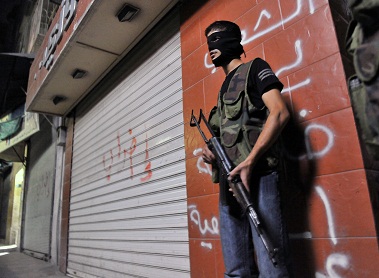CAIRO: Egypt’s Coptic Christian leader Pope Shenouda III apologized in a television interview Sunday to any Muslims who were offended after his top bishop reportedly disputed the authenticity of some verses of the Quran.
The remarks come during a period of heightened tension in Egypt between the majority Muslims and a Christian minority that feels discriminated against.
Shenouda’s apology comes a day after the premier institute of Islamic learning in the Sunni Muslim world, Al-Azhar, criticized Bishop Bishoy, the Coptic Church’s No. 2, for provoking sectarian tension.
Bishoy was quoted in the Egyptian media for wondering about the time frame for the revelation of the Quranic verses disputing the divine nature of Jesus Christ. The bishop reportedly said these verses were inserted after the Prophet Mohamed’s death by one of his successors.
Muslims believe that the prophet received all verses through the Archangel Gabriel during his lifetime and they are the immutable word of God.
Secretary of the Holy Synod and Damietta’s Bishop Bishoy denied any intended insult to the Quran or to Islam, stressing that his statement about revising the Quran was taken out of context.
“I fully respect Islam and Muslims and I never attacked Islam or doubted any of the Quranic verses,” said Bishoy.
Bishoy explained that the issue was first raised during a meeting he had with the Egyptian ambassador in Cyprus. “I cannot understand how such dialogue could be turned into an attack on Islam,” Bishoy said. “I only presented the issue as an inquiry in order to reach a common ground, [it wasn’t] criticism meant [as] an attack … It is unfair to accuse me of contempt of religion.”
Tensions between Muslims and Copts are on the rise over issues like the construction of new churches and bitter arguments over conversions. The two communities generally live in peace, though clashes and attacks have taken place.
"Debating religious beliefs are a red line, a deep red line," Shenouda said in an interview aired on state-run TV. "Maybe they (Bishoy’s address) thought this is for priests only and the remarks were not for publication."
"I am sorry if our Muslim brother’s feelings were hurt," he added.
Bishoy also sparked outrage last week when he told Al-Masry Al-Youm newspaper that "Muslims are only guests" in the country.
For this incident, Shenouda blamed the press for possibly misquoting Bishoy and said that "we are the ones who are guests since Muslims are the majority." Coptic Christians make up around 6 to 10 percent of the country’s 80 million people. Prior to the 7th Century Arab invasion, Egypt was majority Christian.
Thousands of Muslims demonstrated on Friday against Bishoy’s remarks and Al-Azhar’s Islamic Research Center held an emergency meeting to condemn the bishop’s statements.
"Such irresponsible statements threaten … national unity at a time when it is vital to maintain it," said the statement.
The leader of the Muslim Brotherhood opposition group, Mohamed Badie, urged Muslims to "respond to whomever slanders the book of God or the prophet."
Shenouda appealed for calm.
"You don’t extinguish fire by adding more fire, you need water," he said.
Seeking to cool the controversy, political parties and the journalists’ association have urged their members to stay away from the debate.
Muslims complain that the Coptic Church is above state law and enjoys protections and safeguards not extended to society at large. Christians complain of systematic discrimination by the state.
Tension occasionally spills over into violence. In January, a gunman killed six Copts and a Muslim guard in a drive-by shooting outside a church after a Christmas service in the southern town of Naga Hammadi, sparking days of rioting.
There are also repeated demonstrations over rumors that Copts have converted to Islam or vice versa.
In the most recent case, a priest’s wife, Camellia Shehata disappeared in July and reportedly converted to divorce her husband — fueling protests from Christians claiming that Muslims kidnapped her and forced her conversion.
After police found Shehata and returned her home, weekly protests erupted in August, this time by Muslims who claimed Christians were holding her against her will and forced her to renounce Islam. –Additional reporting by Daily News Egypt


